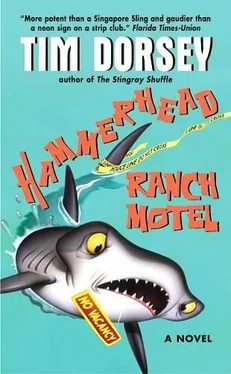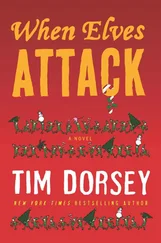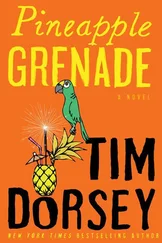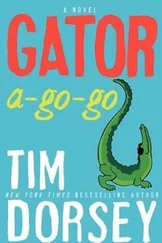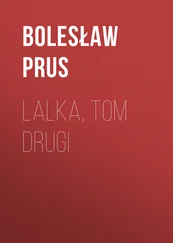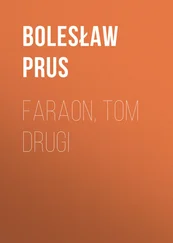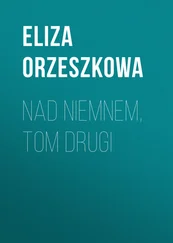At four-fifty, in front of a compressed line of still and video cameras, two husky officers escorted a handcuffed teenage girl out of the police station to a waiting jail van. The girl had ratty hair down in her face.
“Why’d ya do it?” a dozen reporters yelled in harmony.
The girl answered with the middle digit.
The snarling teenager seen on the six o’clock news across the great state of Alabama that night was the incorrigible daughter of the senior records keeper at Montgomery Memorial, a good, hardworking woman trying to straighten out her child. So she took her to work on a recent Friday afternoon and left her in an auxiliary records office to do her homework…where she logged on to the hospital’s confidential computer files and telephoned twenty patients, falsely informing them of positive HIV tests, malignant growths, late-stage leukemia and something she made up called “brain worms.”
Officials at Montgomery Memorial Hospital had been trying for three days to track down the twenty patients. They had reached eighteen. The nineteenth had shot himself in the head that morning. That left only one.
They tried the home phone but got no answer, so they sent someone out to his house. There was no car in the driveway and nobody answered the door. They couldn’t find Aristotle “Art” Tweed.
Neighbors hadn’t seen Tweed around in at least a week, so the hospital asked the police to trace his long-distance phone calls, credit-card charges and ATM withdrawals. The credit-card company already had an eye on Tweed, who, although not over the limit, had begun to amass charges with a frequency and eclecticism that tripped the company’s security software designed to detect cards that had fallen into the hands of binge criminals.
At the behest of the hospital’s civil attorneys, a private detective was dispatched to bring in the nomadic Mr. Tweed before he could incur any liability.
When Montgomery Memorial Hospital was advised to retain a private eye to track down Art Tweed, they followed the same corporate philosophy that guided patient care: cut cost regardless of result. Any law firm worth its salt would have known that the particular private detective selected by Montgomery Memorial was not right for this type of job: It involved people, not inanimate objects. However, the hospital had also retained the cheapest law firm in town, and there were no objections. They dialed the phone.
“I’m on the case,” said Paul, the Passive-Aggressive Private Eye. He put on a fedora, got in his black Ford Fairlane, put “The Peter Gunn Theme” on the radio and headed for Florida.
I have attained a humility that involves no loss of pride,” said Jethro Maddox, just after passing gas in the blue Malibu heading down U.S. 19.
Art Tweed quietly stared out the passenger window, saddened by all the bullies in the world.
They were in the Big Bend, where Florida ’s panhandle makes the wide turn south into the peninsula. There were no more beaches, no postcard scenes. A small rusty bridge spanned a gorge. Art saw a brown highway sign at the river that had a bunch of music notes and the name Stephen Foster. As they crossed the Suwannee River, Art looked down and saw a handmade wooden canoe knifing the glass surface of the water.
The gas needle was on E, and Jethro aimed the Malibu for the turn lane and the old gas station with a tin awning.
On the gas station’s porch was a whiskered man with a large carving knife, whittling a table leg into a tree branch. “Ain’t no way that Hurricane Rolando-berto is gonna hit Florida! I can feel these things. I got the shine.”
“All the weather reports indicate otherwise,” said Jethro.
“They also said we landed on the moon, but that was TV tricks.” The old man leaned and spit. “You’ve been brainwashed by whitey!”
“But you’re white,” said Art.
“Bah!” the man said in a crotchety voice, dismissing Art with a careless flick of the knife. He got up and went inside.
Jethro and Art stepped over a lactating Labrador in front of a rusty Yoo-Hoo machine and followed the man into the station.
Jethro pulled out a Visa card and asked for fifteen bucks of regular unleaded.
“We don’t accept charge cards,” said the old man, displaying undependable teeth.
Jethro pointed out the window at the Visa sign on the gas pumps.
“The distributor put that up,” said the old man. “It’s only good at participating dealers. I’m not a participating dealer.”
“What determines whether you are a participating dealer?”
“Whether I feel like it.” He lit a filterless cigarette and pulled a piece of tobacco off his tongue. With an insulting slowness, he picked up an open gold can of Miller High Life next to the register.
“Okay,” Jethro said in resignation. “Can I get the key to the restroom?”
“Are you buying any gas?”
“No, I am going to a participating dealer.”
“Then you’re not a customer. Can’t you read the sign? Restrooms for customers only.”
Jethro took a deep breath and looked at the ceiling. “A man must sometimes summon patience when there is no reward for doing so.”
“And no Hemingway in here either!” said the old man.
As the clerk talked, Art noticed he had clumps of hair sprouting like pods of lichen from unexpected anatomy, and he knew it would be an image he would have trouble shaking.
“You wanna take a crap? Buy something! Whatever you want-doesn’t matter to me-Ding Dongs, pickled eggs…” The old man patted the big green glass jar next to the lottery machine.
The sound of the old man’s voice became softer and softer inside Art’s head until there was no sound at all-just his lips moving. Art’s stare tightened to tunnel vision around the man’s head. Then he heard a deep, unfamiliar voice inside his skull: He should die! You should kill him!
“Hey! What’s wrong with your friend?” the clerk asked Jethro. “He’s actin’ kinda weird. I don’t think I like how he’s lookin’ at me… Both of you, outta here!”
They backed out of the store like gunslingers retreating from a hostile saloon.
Jethro turned to Art in the car. “There are many roads to dignity, and one is called character-”
“Just drive,” said Art.
Jethro pulled back onto U.S. 19 and Art turned on the radio.
“Hey, boys and girls, this is Boris the Hateful Piece of Sh-AHH-OOOO-GAH! reminding those of you who are old enough to hit the ballot box to make sure you vote yes on Proposition 213…”
“What’s this about?” asked Art.
“Foreign immigrants are taking away your jobs and sponging off your tax dollars! It’s time we stood up for America and put a stop to it!”
“Intolerant bastard!” said Jethro. “When I was in Spain for the civil war-”
“Shhhh!”
As Art listened to Boris, his eyes locked on the radio, and his gaze went to tunnel vision. Boris’s voice slowly faded out and was replaced by a new, deeper voice inside Art’s head. Art was listening.
C ity and Country could feel they were getting close.
They were eastbound, driving through the backroads of Florida without streetlights. The night wind was too cold and they had the convertible top up. They hadn’t seen another car in miles; Bruce Springsteen’s Nebraska tape was in the stereo on low. State Road 16 was narrow and empty, and they rode high beams as they crossed girders over the St. Johns River at five A.M. Twelve miles later, they saw something bright and green in the distance that said they were out of the woods. The on-ramp sign for Interstate 95. They caught the highway below Jacksonville and headed south.
They soon passed the last St. Augustine exit. The stars were gone and the black sky was replaced with dark blue. By Palm Coast, daybreak was definitely on the way, and they crossed over to the seaside A1A highway. At a stoplight, the pair threw the latches; Country turned around and stood in her seat as she pushed the convertible top back. They were in twilight, and they couldn’t distinguish where ocean left off and sky began. They kept glancing left, and a thin red line soon defined the horizon.
Читать дальше
